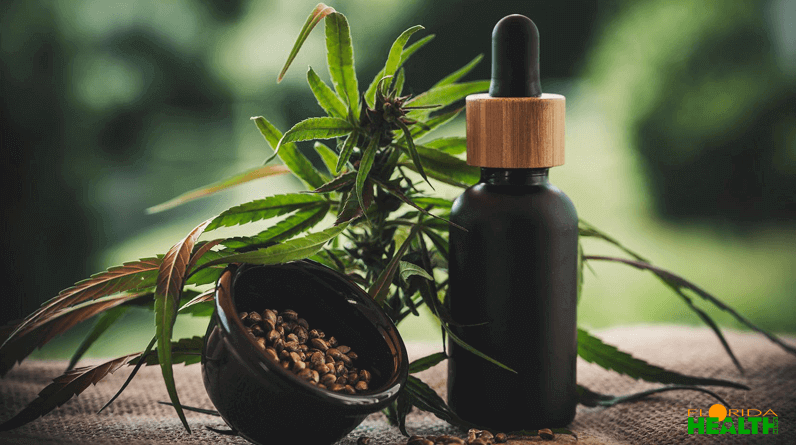
Arthrosis (osteoarthritis) is one of the most common rheumatic disorders in the United States. Contrary to popular belief, it does not only occur among the elderly, young people can also suffer from this obstructive disorder. Research has shown that cannabis is a safe and effective treatment for this condition.
What Is Osteoarthritis?
Osteoarthritis is characterized by painful (and sometimes inflamed) joints, due to the deteriorated quality of cartilage in the musculoskeletal system.
The cartilage cushions that prevent bones from rubbing against each other deteriorate in quality, and become softer and thinner, causing the bone under the cartilage to deform and visible and palpable nodules (osteophytes) to form.
These lumps not only limit the flexibility of the joint, they can also pinch nerves, resulting in pain, sensory disorders, and loss of strength.
Implications And Treatment
Because we use our joints constantly, holding a cup, writing, typing, opening a tap, tying laces, or bending down for example – osteoarthritis can be very limiting for patients. It is estimated that about 80 percent of all atrose patients are somehow limited in their mobility. Ironically, regular exercise and maintaining a healthy weight can actually slow down the progress of osteoarthritis.
Patients often get a prescription for painkillers or are advised to use NSAIDs – such as ibuprofen – against the symptoms of their disease. However, in the long term, these can be harmful to the stomach and cause fatal gastric bleeding. Moreover, these drugs are not always effective but are very expensive to buy.
Cannabis Oil For Osteoarthritis Pain Relief
Cannabis often turns out to be a more effective and safer alternative to these harmful substances. Some doctors are firmly convinced of this and even recommend exchanging NSAIDs such as ibuprofen for cannabis. After all, the most common active cannabinoids in weed, THC, and CBD, appear to be enormously potent anti-inflammatory drugs.
It is even thought that cannabidiol (CBD) is a more potent anti-inflammatory than pharmaceuticals. In addition, delta-9-tetrahydrocannabinol (THC) has been shown in several studies to be a strong painkiller. Osteoarthritis patients, therefore, benefit from both CBD and THC, in the form of cannabis oil for example.
Research
A study on animal models confirms the potential of cannabis as a drug against osteoarthritis. The stimulation of CB2 receptors in the backbone of rats(1) led to a decrease in pain response and inflammation. Researchers found among other things that animals with osteoarthritis, :
- an increased number of CB2 receptors in nerve cells and microglia (essential support for nerve cells).
- signs of central sensitization (increased response to pain as a result of irritation/activation of pain nerves due to damage or swelling of surrounding tissue).
Stimulating the CB2 receptors with (in this case synthetic) cannabinoids yielded the following results:
- JWH133, a CB2 agonist such as cannabidiol (CBD), lowers behavior associated with pain and reduces levels of inflammation.
- Administering the CB2 agonist directly on the spine helps prevent osteoarthritis pain response
- Administering the CB2 agonist reduces central sensitization
Conclusion
According to the researchers, ‘stimulating CB2 receptors can offer therapeutic benefits in the treatment of (osteoarthritis) pain’. CB2-receptors can be stimulated with the body’s own cannabinoids, vegetable cannabinoids (from weed), or synthetic forms of these plant substances, as was done in the research in question. However, our preference remains for the natural form of cannabidiol, from hemp or the cannabis plant, as a diluted CBD oil, for example.
Cannabinoid therapies provide, according to scientists, ‘a neurobiological basis for the analgesic effects of the CB2 receptor’. By doing so, they want to make it clear that the analgesic effects of cannabis do not stem from the regulation of emotions, but from an actual physiological reaction.
In conclusion, the scientists draw three conclusions from this research. Since (1) opiate painkillers are only an option for osteoarthritis patients for whom standard treatments are ineffective or should be avoided; and (2) the use of opiates can lead to undesirable side effects such as addiction and death; and (3) cannabis can potentially partially or completely replace opiates in some cases, patients can greatly benefit from the availability of safe painkillers such as cannabinoids.

Carl Riedel is an esteemed online researcher and writer, specializing in the intersection of technology and wellness. As a member of the International Association of Therapists, Carl brings a unique perspective to his work, skillfully integrating insights from therapy and digital trends. His articles help readers navigate the complexities of the digital age with an emphasis on promoting mental and emotional well-being.







